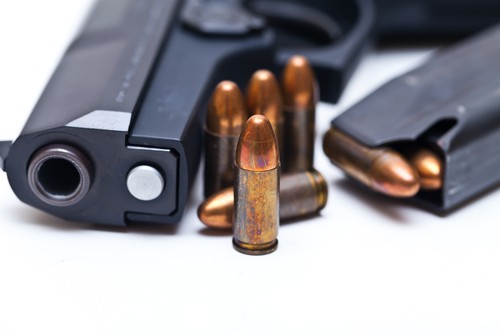
Texas is a state known for supporting Americans’ right to bear arms, but there are several instances in which the Second Amendment comes into conflict with the Texas penal code. You may be facing an allegation that you possessed a firearm in a way that is somehow criminal, and the stakes of defending yourself against such an allegation may be quite high.
To learn how a McKinney weapon offense lawyer may be able to help you defend yourself against a weapon-related criminal charge, call our team at the Law Offices of Randall B. Isenberg today at (214) 696-9253 for a free consultation.
Weapon Laws in Texas Are Not Without Limits
As far as restrictions on gun ownership go, Texas is a fairly free state. Conditions under which you may not be able to own a firearm include:
- Being younger than 18 years old (rifle) or younger than 21 (handgun)
- Being convicted of a felony
- Being determined to be in a mental state that could make you a risk (Texas statute Section 411.052)
Additionally, you may face a criminal weapon charge if you carry a firearm, as outlined in the Texas penal code Title 10, Chapter 46:
- In the commission of a crime
- On your person, if you do not have a concealed carry permit
- That is prohibited from ownership
- In an area that prohibits you from doing so, such as an airport
This same section of the penal code details weapons that are prohibited outright in the state, unless they are registered on the National Firearms Registration and Transfer Record. Such potentially prohibited weapons include:
- Machine gun
- Short-barrel firearm
- Explosive weapon
- Zip gun
- Improvised explosive device (IED)
- A firearm with a silencer device
There are additional forms of weaponry that may be considered illegal to possess in the state of Texas, and you could be facing your criminal charge because you possessed such weapons.
Possible Consequences for a Weapon Offense Conviction
Texas law sets out sentencing guidelines—sometimes including minimum sentences—for various categories of crimes, and weapon offenses are no exception.
Depending on the nature of the charge you are facing, you could be subject to:
- Fines
- Jail time
- Prison time
- Forfeiture of various rights
- A combination of these outcomes
It is worth considering the possible repercussions that could come if you are to be convicted of your weapon charge(s).
Possible Consequences for Felony Firearm Convictions
Depending on the specific charge or charges that you are facing, you could be sentenced under guidelines ranging from first-degree felony down to Class-C misdemeanor.
According to the Texas Politics Project, for a first-degree felony conviction, which may arise if you were alleged to have been engaged in a violent crime while possessing a firearm, you could face:
- Up to life in prison
- A fine of up to $10,000
If your charge qualifies as a second-degree felony, then legal repercussions for a conviction may include:
- Up to 20 years in prison
- A fine of up to $10,000
Some handgun-related charges, such as certain forms of unlawful carrying, may be categorized as third-degree felonies. A conviction on such a charge could mean:
- Up to 10 years in prison
- A fine of up to $10,000
The last category of a felony is state jail felony. Carrying certain prohibited weapons may be an offense that qualifies as a state jail felony. Possible punishment for a state jail felony conviction includes:
- Up to 2 years in state jail
- A fine of up to $10,000
Felony convictions may also result in the forfeiture of your right to possess a firearm and your right to vote.
A McKinney weapon offense lawyer may formulate and execute your defense against a weapon charge. Call our team at the Law Offices of Randall B. Isenberg today at (214) 696-9253 for a free consultation.
Possible Consequences for a Misdemeanor Firearm Conviction
While misdemeanors are considered less serious than felonies, a misdemeanor conviction can still have a negative impact on your life.
Sentencing guidelines for a conviction of a Class A misdemeanor offense (the most serious type of misdemeanor) may include:
- Up to a year in jail
- A fine of up to $4,000
Texas penal code (Sec. 46.01) does not list any crimes that qualify as a Class B misdemeanor in their Weapons chapter. Some crimes, such as certain unlawful or prohibited carrying offenses, may qualify as a Class C misdemeanor. A conviction of a Class C misdemeanor may result in a $500 fine.
Beyond these legal consequences, convictions of any kind may negatively impact:
- Your ability to gain employment, or at least employment that you find desirable
- Your ability to obtain housing
- Your standing in other legal matters
- Possible future sentencing for crimes you may be accused of committing
- Your reputation
Your defense against a weapon charge is not to be taken lightly.
Speak to a Legal Professional About Your Case Today
There is not a second to waste if you are facing pending charges involving a firearm. Speaking with a legal professional may be the first step towards:
- Collecting evidence that may benefit your defense
- Hiring experts who could testify on your behalf
- Forming your defense against these serious charges
- Reaching a legal resolution to your case
Call Our Team at the Law Offices of Randall B. Isenberg Today
We will conduct a free consultation to obtain the facts of your case and let you know how we may be able to help you during this stressful time. Call our team at the Law Offices of Randall B. Isenberg today at (214) 696-9253 for a free consultation.
Lead attorney Randall B. Isenberg has more than 30 years’ experience as a former prosecutor, state district judge, and criminal defense attorney.










